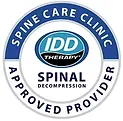
Vitamin D Sources and How to Address Deficiency Risks
My name is Dot and I am a Phlebotomist. Before joining the team at Active Therapy Clinic, I worked in a GP surgery, providing B12 boosters, immunisations, ECGs, blood pressure and health checks.
At Active Therapy Clinic in Cirencester, we specialize in addressing vitamin D deficiency through expert evaluations and solutions tailored to your needs. With a focus on optimizing vitamin D sources, we provide guidance on dietary adjustments and sunlight exposure to naturally boost levels. Additionally, we offer vitamin D booster treatments, ensuring effective and convenient supplementation. Explore how enhancing vitamin D levels can support your overall health, from stronger bones to improved immune function. Contact us today to learn more about our services and discover the benefits of utilizing natural and supplemental vitamin D sources for your well-being.
Vitamin D deficiency risks
Vitamin D is a fat soluble vitamin the body naturally makes when exposed to sunshine or certain foods.
Sunshines helps the body to absorb Vitamin D. It has been suggested that we sit in the sunshine for 5-30 minutes per day. 90% of Vitamin D comes from exposure to sun.
Vitamin D regulates the levels of calcium and phosphate in the body and keeps bones, teeth and muscles fit and healthy.
Symptoms of low Vitamin D
Lack of Vitamin D can lead to deformities such as Rickets in children and bone pain caused by Osteomalacia in adults.
How do we get Vitamin D?
-
Dairy products
-
Oily fish, Salmon, Sardines, Herring & Mackerel
-
Egg Yolks
-
Mushrooms (some have more Vitamin D than others)
-
Red Meat
-
Liver
-
Fortified foods such as some fat spreads and breakfast cereals
Very little Vitamin D comes from diet, it comes mainly from being exposed to the sun. The body does the rest.
What affects Vitamin D levels?
-
Lifestyle - if we do less outdoor activities, busy indoor lives, working from home
-
Clothing - if we are more covered up at certain times of the year
-
Diet - are we eating enough food and variety of foods
-
Obesity - better Vitamin D levels can help lose weight
Who is more at risk from Vitamin D deficiency?
-
Pregnant people and those who are breastfeeding
-
If you have darker skin, for example African, African-Caribbean or South Asian backgrounds
-
Wearing whole body coverings
-
Skin cancer patients who need to avoid the sun
-
Elderly
-
Those who spend a lot of time indoors and get little sun exposure
How do we give Vitamin D supplements
Boosters are given intramuscularly usually in the upper arm and be done twice yearly, dependent on an individuals needs and levels. It is always best to discuss this option with a healthcare professional.
How do I get my Vitamin D levels?
You can find out your Vitamin D levels with a simple blood test from either your GP or by a simple test at home kit. If they are on the low side you can have a Vitamin D booster twice a year to boost your levels. If you are deficient in Vitamin D it is best to be followed up with a yearly blood test.
The NHS has suggested that we should be taking supplements of Vitamin D of 10 micrograms (400IU) daily between October and Early March to keep bones, teeth, muscles etc healthy.
Vitamin D may help you boost your white blood cells which enable you to fight infections better.
Is Oral Vitamin D enough?
It is easily accessible and inexpensive BUT has to be taken every day or you will not get the relevant dose.
Side Effects
Adverse events are usually associated with excessive intake of Vitamin D, leading to the development of Hypercalcaemia, kidney, liver and heart problems.
Contraindications
-
Kidney and liver problems
-
Pregnancy and breastfeeding
-
Active acute treatment for anything
-
Waiting for an operation
-
Allergy to any of the ingredients
-
Hypercalcaemia (high calcium levels)
-
Evidence of Vitamin D toxicity
-
Hypervitaminosis D (high levels of Vitamin D)
-
Already taking Vitamin D supplements recommended by a Medical Practitioner
References & further information
https://www.nhs.uk/conditions/vitamins-and-minerals/vitamin-d/
https://www.nhs.uk/live-well/eat-well/
This is for information purposes and is not conclusive and/or legally binding in any way.

